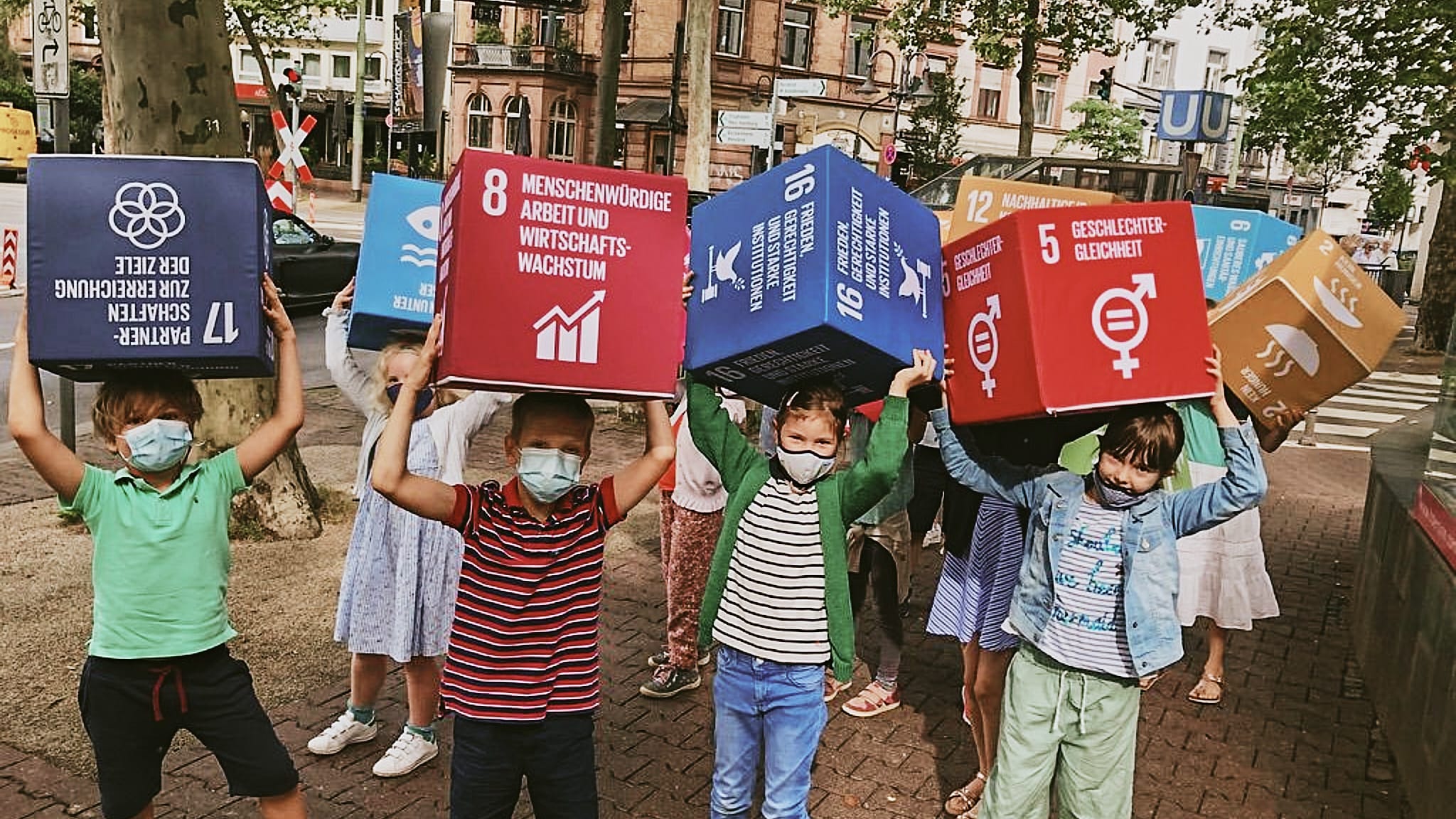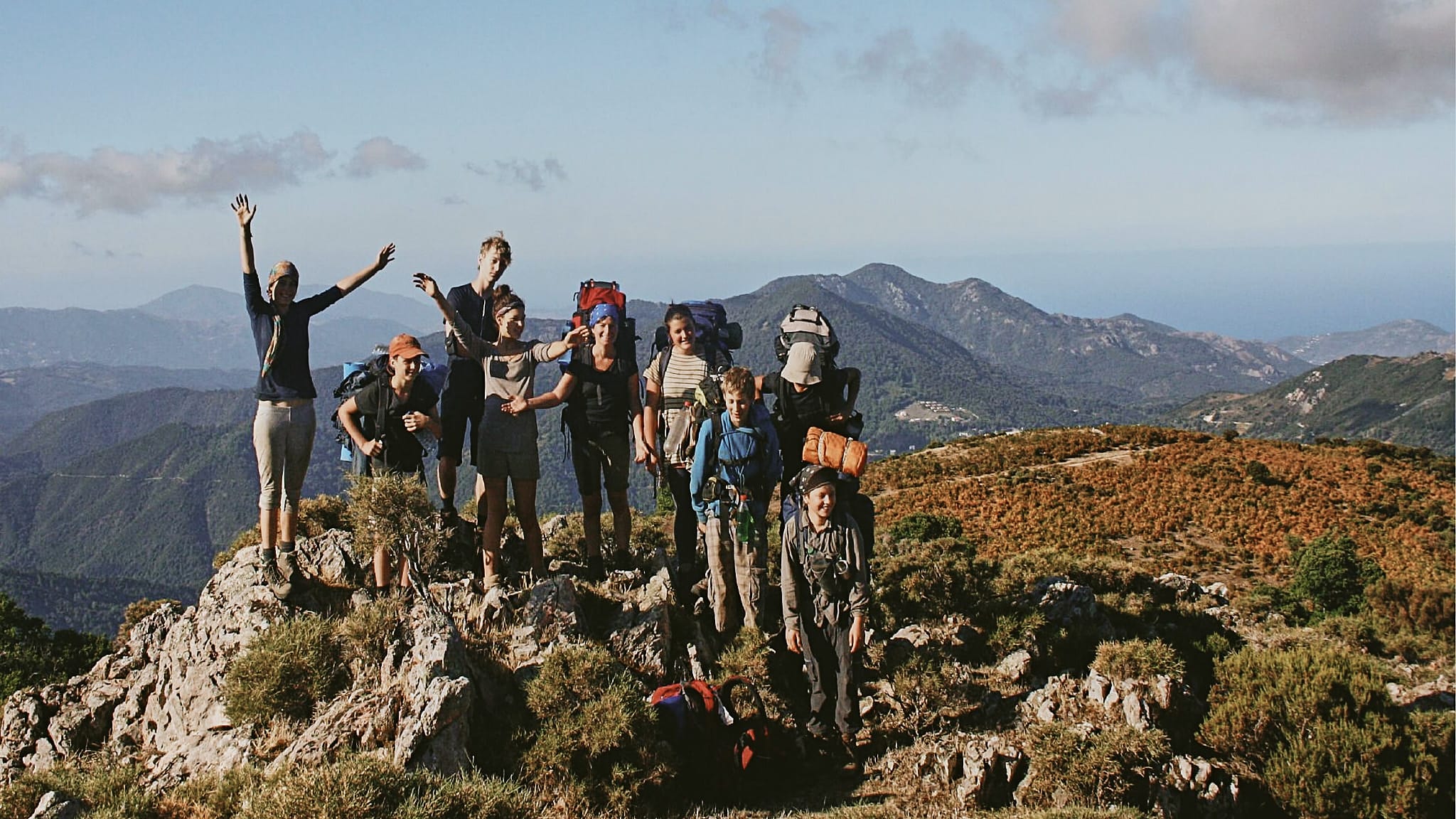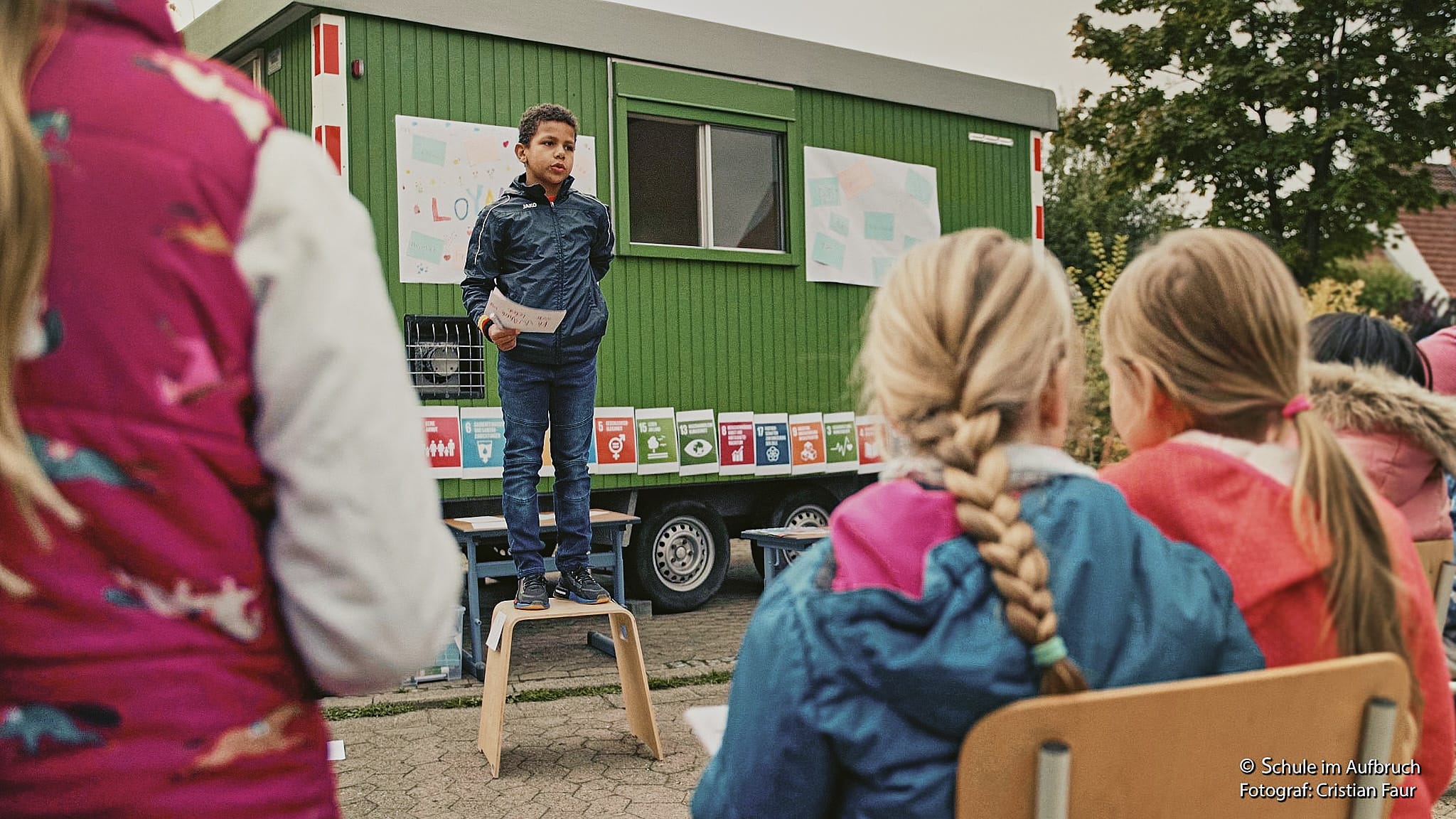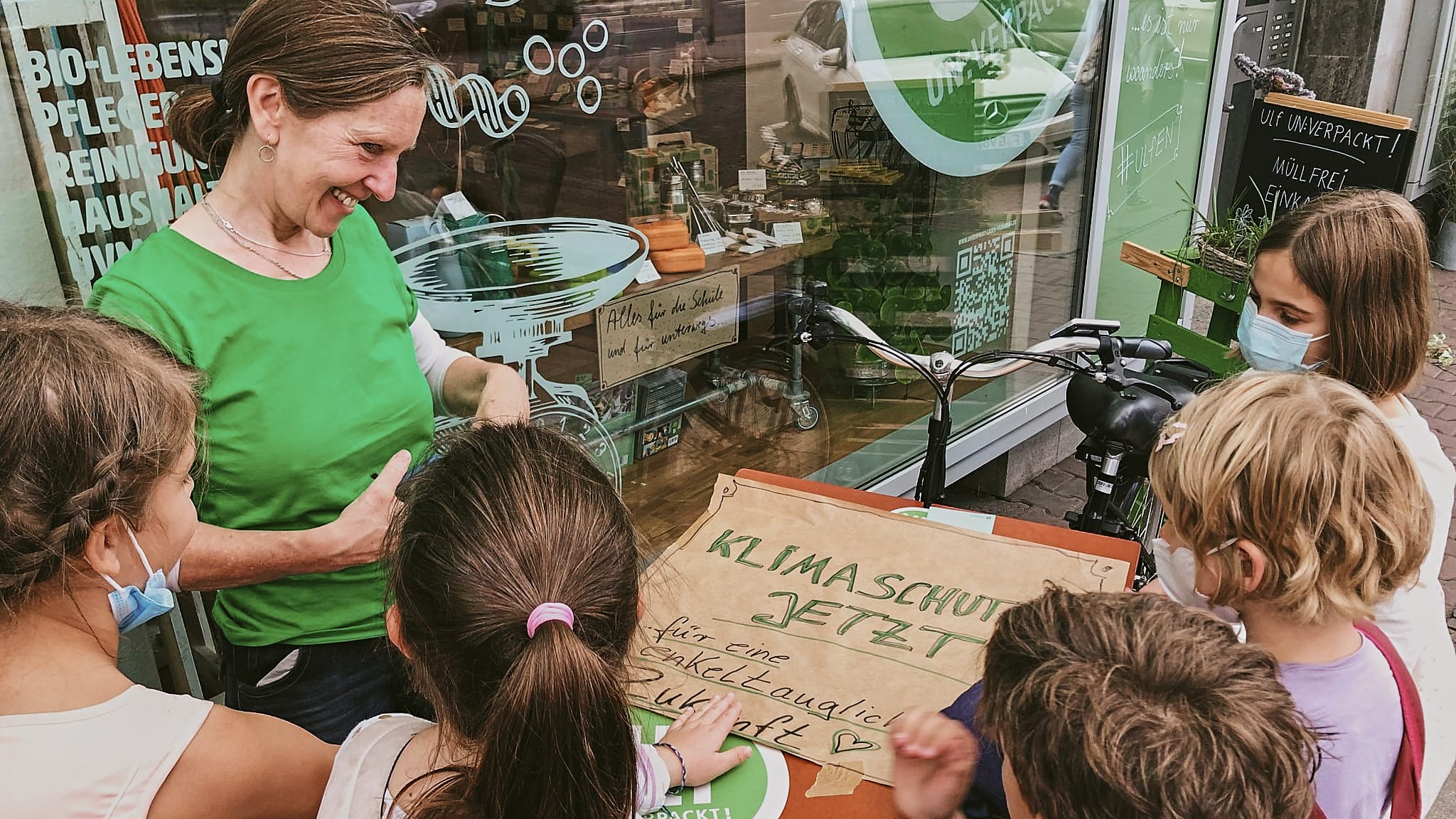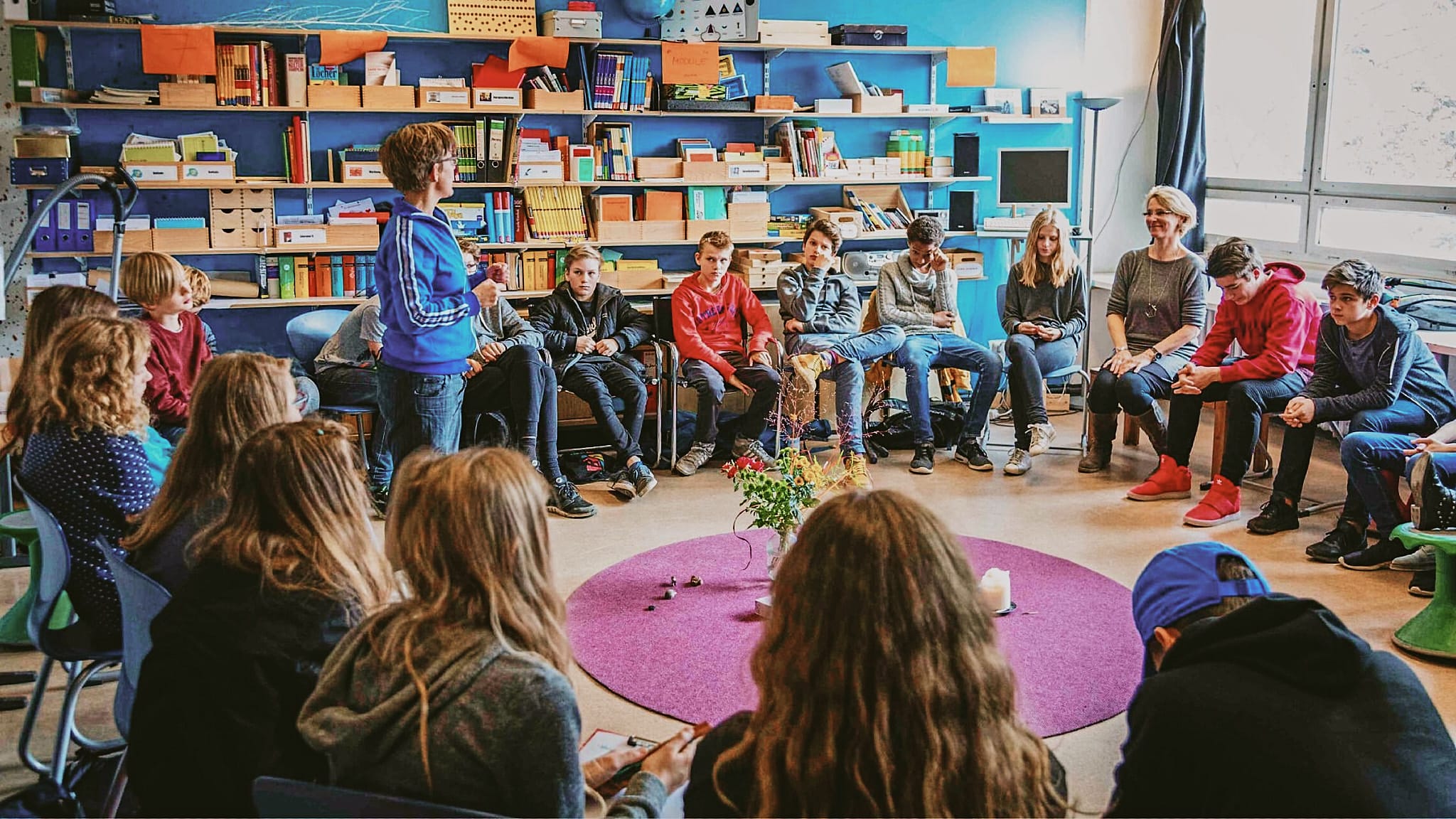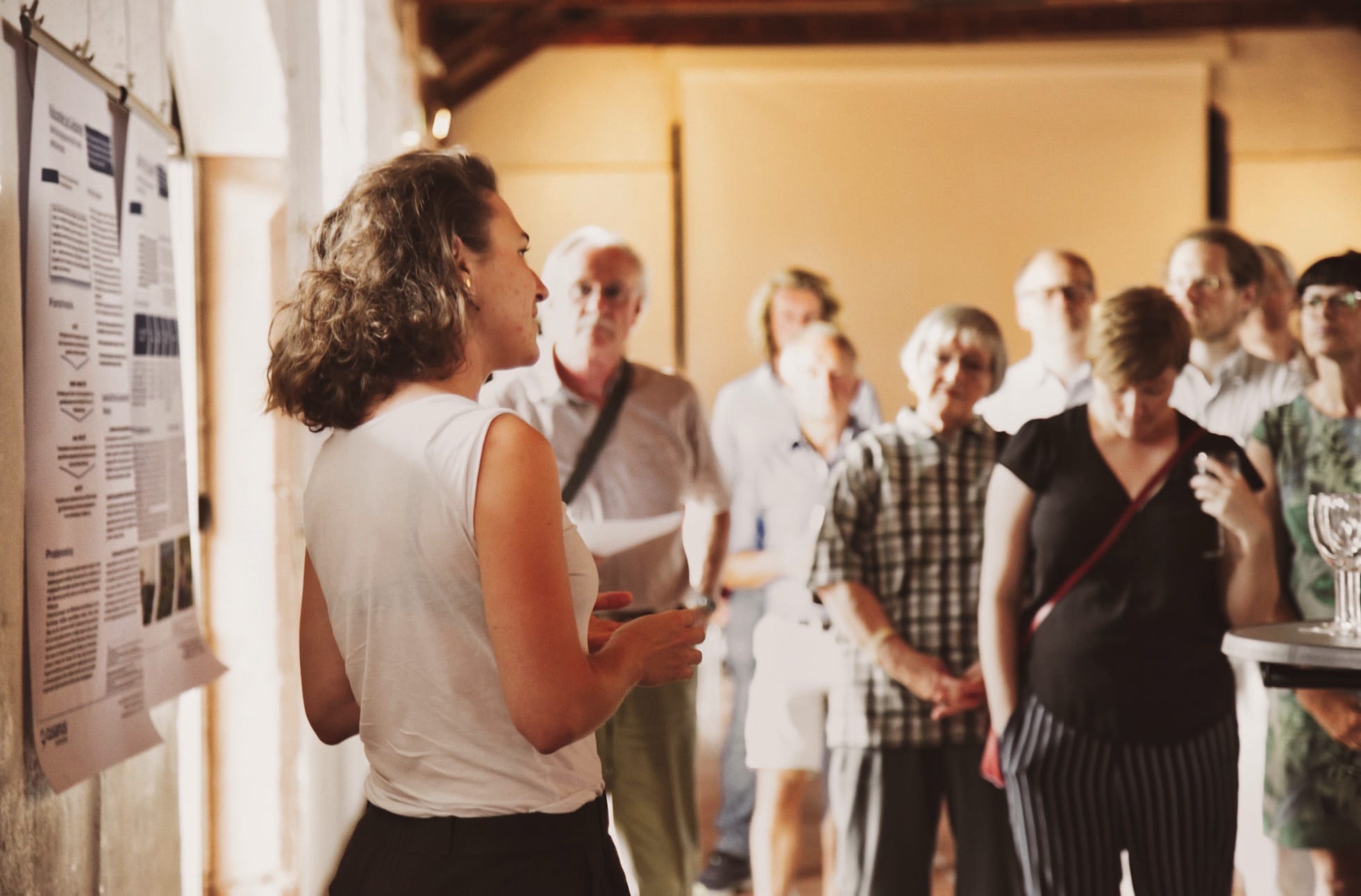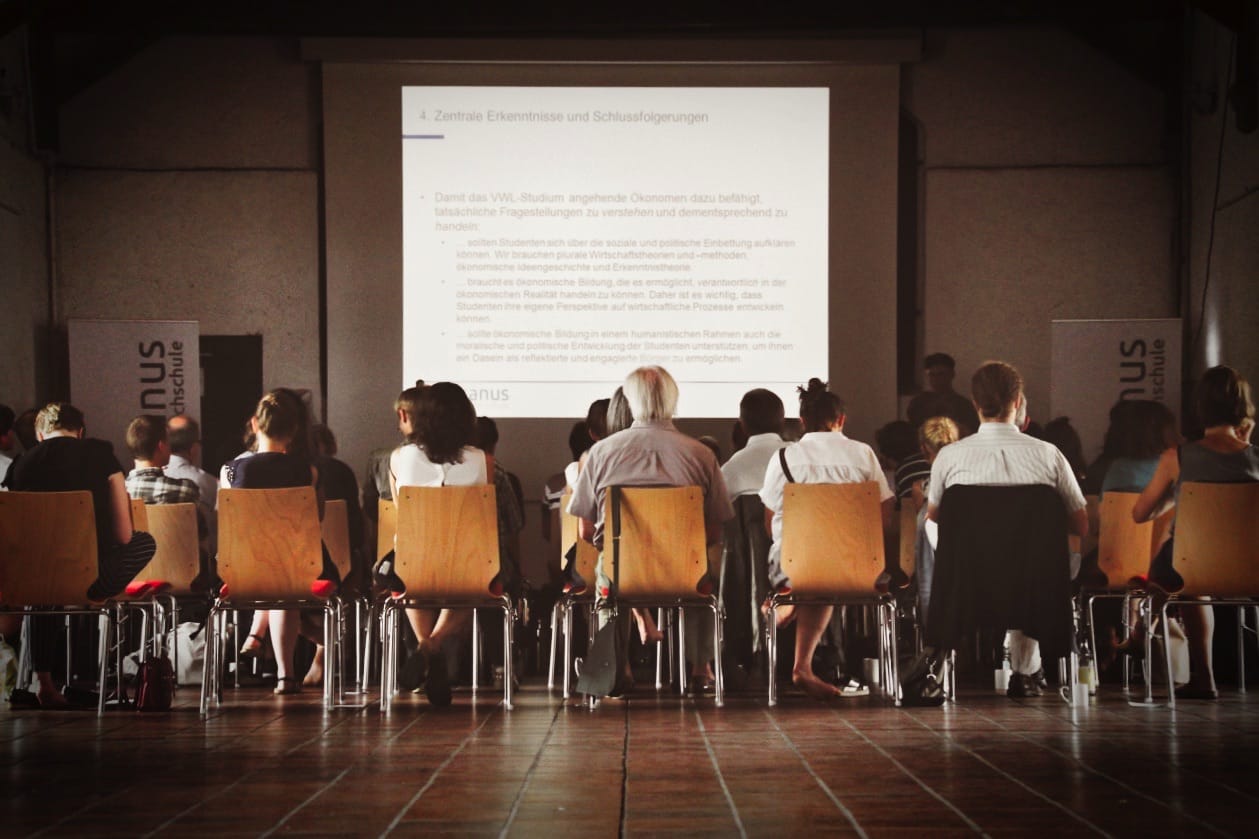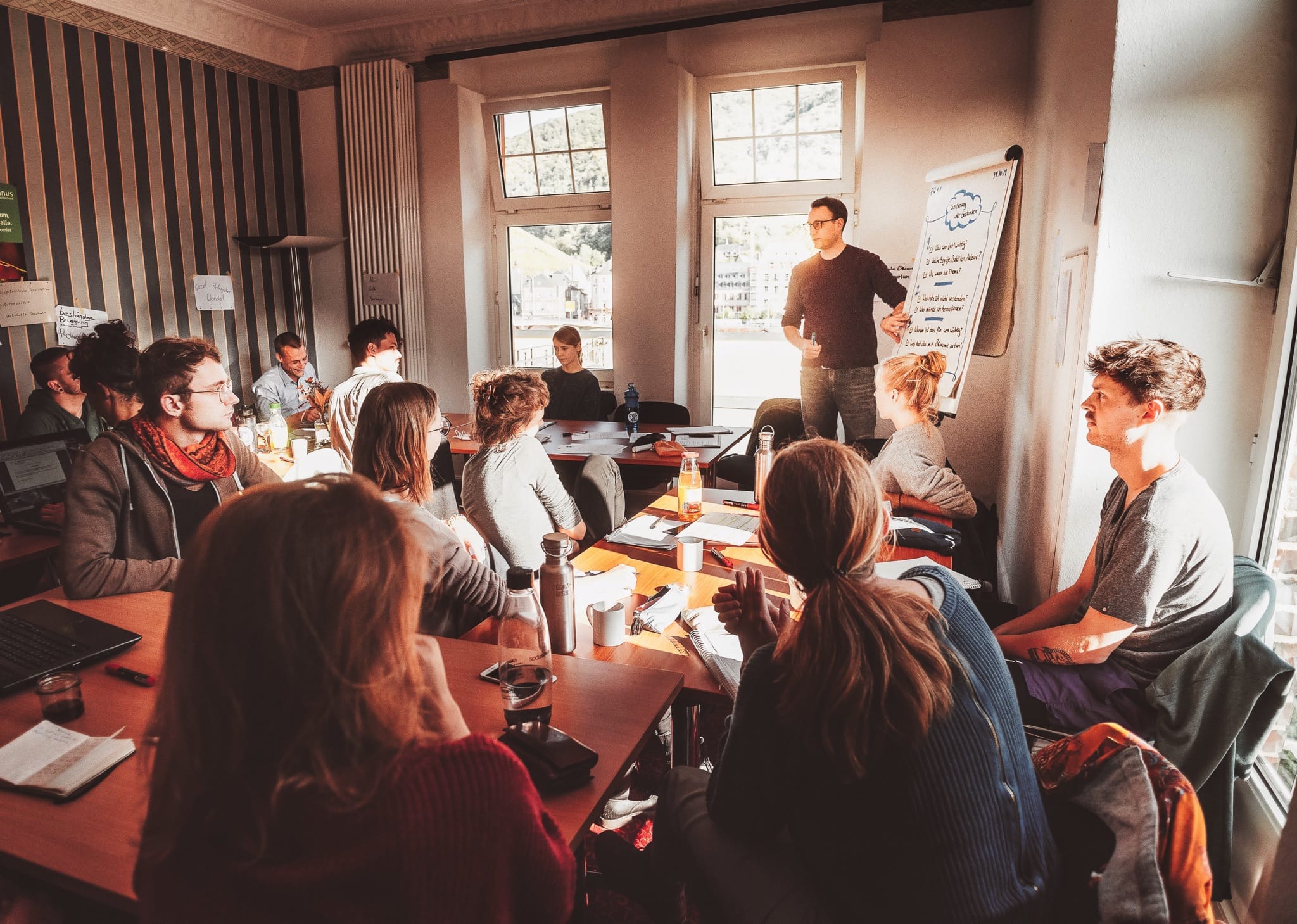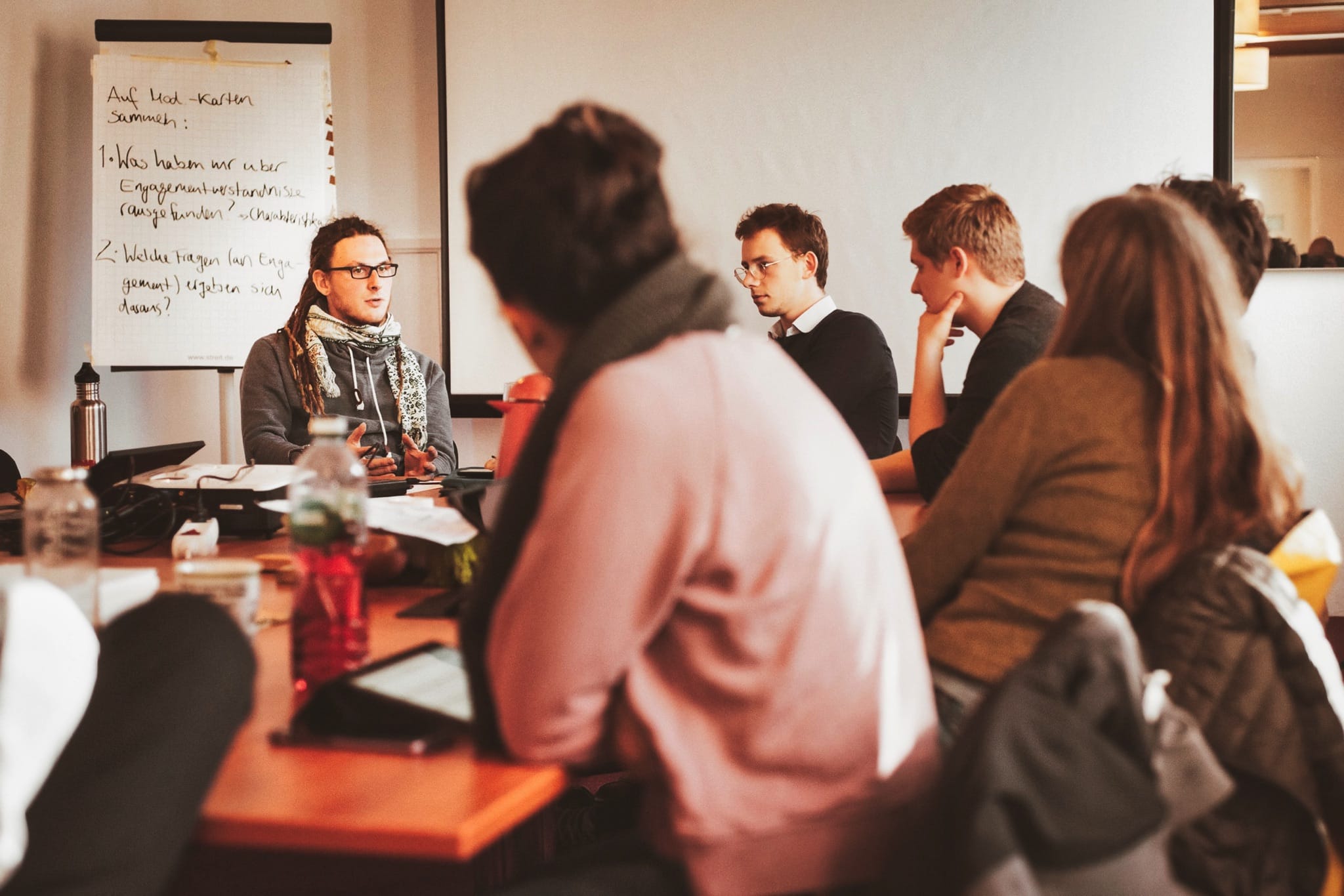Background
A fair distribution of resources, addressing the climate crisis and creating equal opportunities are just some of the major challenges of our time. In order to develop sustainable solutions, we need a young generation of makers, creators and enablers. Characterised by their courage, creativity, critical and holistic thinking skills, they need to take own initiatives grounded in cooperative action. However, the current school system in Germany is primarily designed according to security and control functions.
Its hallmark are elements such as fragmented learning according to timetables, standardised rote learning, the dissemination of strictly subject-based knowledge, and promoting values such as obedience to authority and institutions – without critical thinking. But children and teenagers need space and time to discover their individual interests and capabilities; to develop a systemic, cross-curricular understanding; and to acquire a habit of thinking and acting responsibly. This is where “Schule im Aufbruch” comes in.
Learning for Life
By developing and implementing creative learning formats, the initiative enables students to acquire the skills needed for creating a more just and sustainable society.
The “FREI DAY”, for example, is all about creativity, holistic thinking and responsibility. The learners spend at least four hours a week investigating important issues that they have chosen themselves, based on the 17 Sustainable Development Goals of the United Nations. They develop innovative and concrete solutions and implement their projects directly where they matter – in their neighbourhoods and local communities.
The „Lernbüro“ enables students to acquire knowledge of subject matter in a self-responsible way at their own pace. With the guidance of pre-structured modules, the students can navigate independently through the learning materials.
The project “Herausforderung” asks participating students to leave their own comfort zone for two to three weeks. Together in a small group and equipped with only € 150, they embark on a personal journey. Whether it is crossing the Alps, living in a monastery, or writing a book – the participants take on their own challenges.
Working together with schools, “Schule im Aufbruch” relies on a three-pronged strategy. It informs interested schools about learning formats and best practices; it links like-minded educational institutions with each other through a dedicated digital platform and by setting up regional groups; and it facilitates the transformation process of participating schools.
Together with “Schule im Aufbruch”, the knodel foundation therefore contributes to rethinking education and creating more free and creative spaces for school students across Germany.
The Hochschule für Gesellschaftsgestaltung is a state-recognized University of Applied Sciences in Koblenz in Southwestern Germany. Founded in 2014, it represents a new type of university in which teaching and research combine knowledge, action, and the power of imagination to create responsible and effective engagement. To this end, it develops didactic and scientific methods for design-oriented sciences. The active (co-)design of teaching, research, institution and society is an integral part of all its degree programs.
The impact of the HfGG’s research and educational innovations is designed to radiate far beyond the university. Together with its students and alumni, as well as practice, research and funding partners, the HfGG is becoming the center of a far-reaching network of change. In this way, it succeeds in pushing its established best practices into other educational institutions and platforms. To this end, the university works with transformers such as the “Fridays for Future” movement and innovative companies and foundations. This network enables new possibilities to engage such as through summer schools, digital lecture series and practical camps. With teaching materials and training courses, the university supports reform-minded teachers at other universities and convinces influential publishers. Finally, it increases the pressure on those who do not want to change of their own accord by initiating education policy campaigns.
All of this is only possible because donors recognize the university’s impact and potential and support the HfGG in its endeavors. Financed through a non-profit limited liability company (gGmbH), the university does not receive any basic state funding, but lives from donations and tuition fees.
